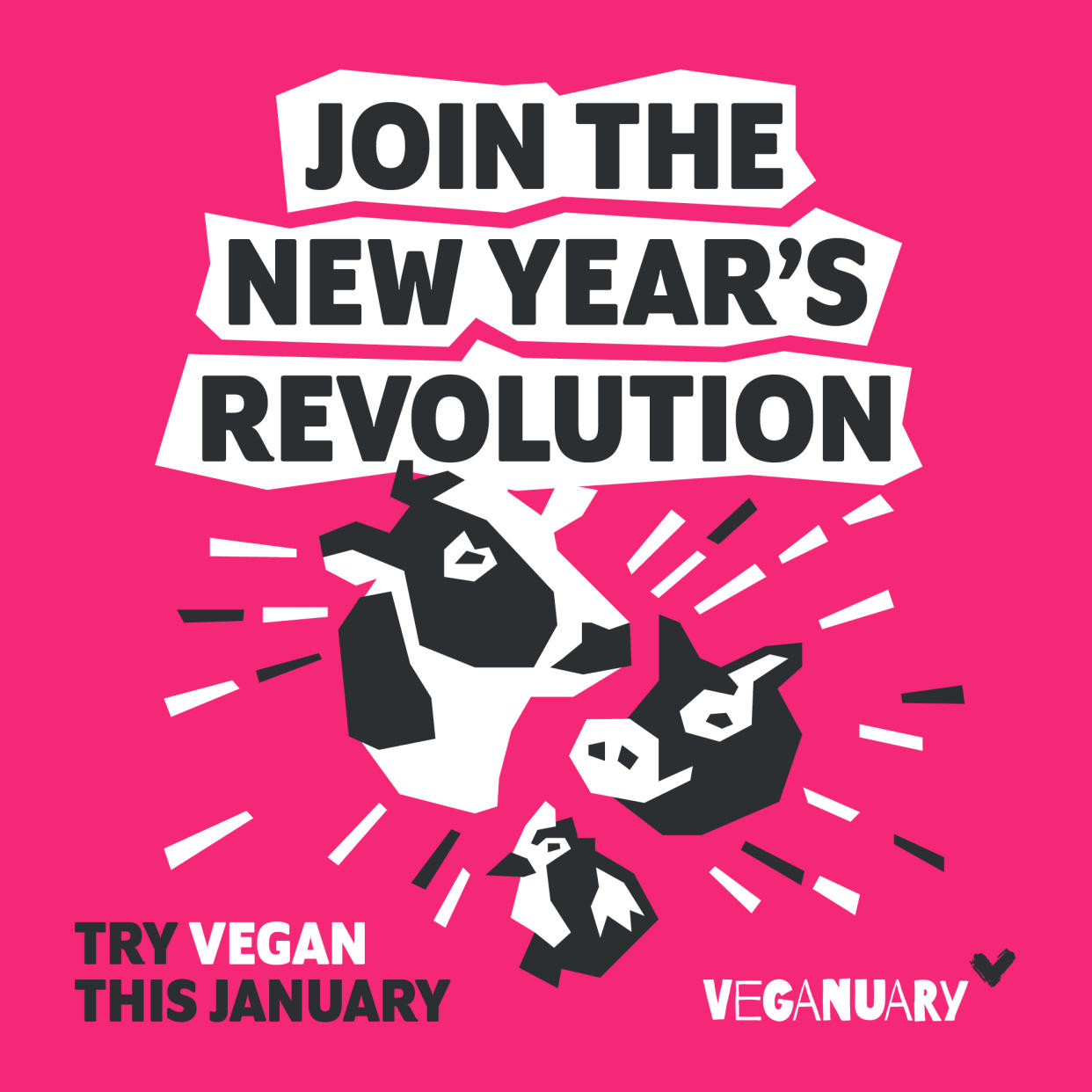Is 'Veganuary' the new dry January? Everything you need to know about the pledge to try going vegan

Between the explosion in plant-based burgers and a growing crowd of celebs, from Alex Morgan to Zac Efron, espousing the benefits of going animal-product free, veganism has been all the rage this year. And it’ll be even more of a thing in 2020 if a UK-based campaign called Veganuary has its way.
“Choose compassion, take the pledge,” urges the U.S. website of the nonprofit campaign, which asks people to commit to eating vegan — so not consuming any animal-derived foods, such as meat, dairy, eggs or honey — for the month of January 2020. While the non-profit campaign was founded in 2014 in the UK, it’s making an international push this year, with a particular eye on Germany, South Africa, Chile and the U.S.
So, what’s it all about? Here’s everything you need to know about Veganuary 2020.
The campaign got over 250,000 people to take the pledge in 2019
And, since its launch in 2014, it has inspired more than half a million people altogether, in 178 countries — with the top five being UK, U.S., India, Canada and Australia — to sign up. This year it’s likely on track to make its lofty goal of 350,000 pledgers, with 65,000 already on board since the Dec. 1 launch. “Our vision is simple,” notes the website. “We want a vegan world.” To help achieve that goal, the non-profit provides starter kits, recipes, nutrition information, meal plans, tips on eating out and other forms of ongoing support (including through a Facebook group) throughout the month, with the hope that many people will stick with the diet beyond just January (and 47 percent said they would last year, according to a Veganuary survey).
Celebrities are getting on board
Joaquin Phoenix, Alicia Silverstone and Mayim Bialik are among the Hollywood-crowd official Veganuary supporters, along with racecar driver Leilani Münter, volleyball player Dustin Watten and chef Derek Sarno. U.S. sponsors include Farm Sanctuary, Mercy for Animals, In Defense of Animals and Woodstock Farm Animal Sanctuary. "If you look at the climate crisis or the violence of our food system and feel helpless, thinking ‘I wish there was something I could do,’ you can. Right now,” says Joaquin Phoenix in the campaign. “Sign up to try vegan this January."
People have many reasons for participating
Those signing up cite a range of motivating factors, including health (46 percent) and animals (34 percent); a body of research has, for the most part, shown that eating less red meat is healthier for the heart and for preventing cancer (though recent findings disagree), while eating dairy has been linked to increased risk in ovarian cancer, inflammation, diabetes and asthma.
The benefits to animals of going vegan are huge — including for male calves, who are often shot at birth or else reared for veal, and for male chicks, millions of which are killed shortly after hatching, as they have no value to the egg industry. As for the creatures with value, conditions of factory farming are often deplorable and kill more than 29 million cows, 9 billion chickens and millions of pigs each year.
Another 12 percent of people taking the pledge say they are doing so for the environment, syncing with the message of Time’s “Person of the Year” Greta Thunberg, who has described herself as being vegan for “ethical, environmental and climate reasons,” and was recently named PETA’s Youth Role Model of the Year.
As for the environmental impact, more than 80 percent of the Amazon rainforest that’s been cleared since 1970 is used for meat production, either for growing cattle feed or for cattle grazing, while nearly a fifth of human-induced greenhouse gas emissions come from animal agriculture, according to the United Nations. And a Dec. 11 letter from scientists to the Lancet Planetary Health journal, supported by more than 50 leading experts, calls on all but the poorest countries to “declare a timeframe for peak livestock,” within the next 10 years, and for it to not increase after then, as a way to tackle the climate crisis.
“This year, the environmental message is leading,” Veganuary U.S. director Wendy Matthews told the Washington Post this week. “Research shows that the single biggest thing we can do for the environment is to go vegan, so that’s a lot of the framing we’re doing.”
Read more from Yahoo Lifestyle:
Soccer star Alex Morgan is a vegan — here’s why plant-based eating is a growing trend for athletes
Natalie Portman explains how her veganism relates to women’s issues: ‘We’re exploiting female bodies’
Follow us on Instagram, Facebook and Twitter for nonstop inspiration delivered fresh to your feed, every day.


